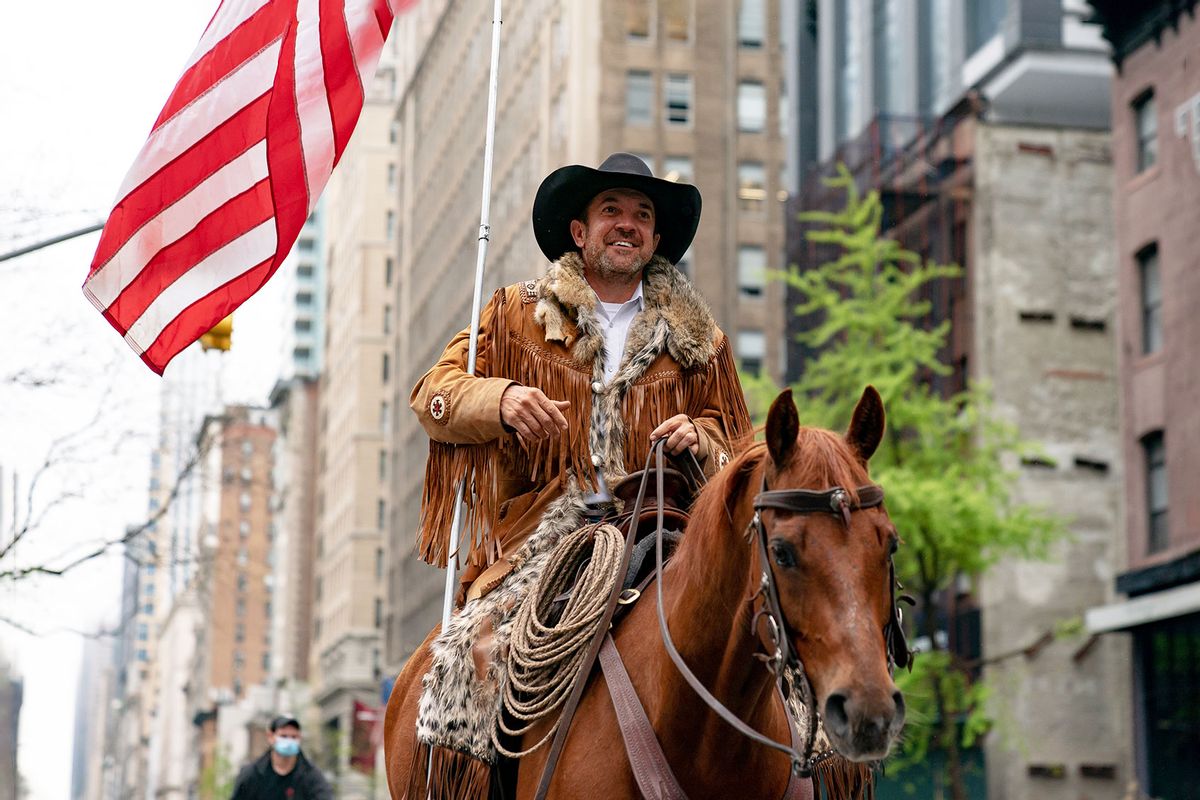A New Mexico judge ordered that Couy Griffin, a commissioner in Otero County and the leader of "Cowboys for Trump," be removed from office for violating the 14th Amendment by participating in the Jan. 6, 2021 Capitol riot, which the judge described as an insurrection. District Court Judge Francis Mathew further ruled that Griffin was permanently disqualified from holding public office.
This is the first time any court has officially ruled the Jan. 6 attack to have been an insurrection under the law, and also marks the first time in 150 years that any U.S. court has disqualified a public official under Section 3 of the 14th Amendment, according to Citizens for Responsibility and Ethics in Washington, a government watchdog group that represented New Mexico residents who filed the lawsuit seeking to disqualify Griffin.
Plaintiffs argued that Griffin had "violated his constitutional oath by mobilizing, inciting and then joining a violent insurrection" at the Capitol.
Griffin, who was an elected commissioner in Otero County along New Mexico's southern border, was convicted earlier this year of trespassing for illegally breaching the Capitol grounds alongside numerous other rioters who crossed multiple layers of security barricades. He filmed a speech on the Capitol steps for social media, leading chants of "This is our house" and "We could all be armed."
"The story of Couy Griffin is an example of exactly why you don't want insurrectionists in government," CREW chief counsel Donald Sherman told Salon. "Not only was he a part of the insurrection on Jan. 6, but in his county, he was trying to overturn the results of an election this year."
Griffin, a vocal supporter of Donald Trump, has repeatedly echoed the former president's false claims of widespread voter fraud. He refused to certify the June primary election results in Otero County (which is largely Republican), citing conspiracy theories about Dominion voting machines. In 2019, Griffin formed Cowboys for Trump, which held pro-Trump horseback parades in major cities and urged supporters to travel to Washington on Jan. 6.
While the ruling by Judge Mathew removed Griffin from his position, it also sets an apparent precedent that is likely to be tested elsewhere and in other election cycle.
Want a daily wrap-up of all the news and commentary Salon has to offer? Subscribe to our morning newsletter, Crash Course.
Sherman said the lesson was straightforward: "We're going to have free and fair elections. People who will use misinformation or threats of violence to overturn free and fair elections can and will be held accountable."
Section 3 of the 14th Amendment, known as the Disqualification Clause, bars any person from holding federal or state office if they "have engaged in insurrection or rebellion against the same, or given aid or comfort to the enemies thereof."
Plaintiffs in the case argued that Griffin's role in engaging "in insurrection or rebellion" and in giving "aid or comfort" to insurrectionists violated the constitutional oath he took upon taking office.
The judge's historic ruling may well serve as a model for new arguments in favor of disqualifying other elected officials who attempted to overturn the 2020 election from holding office in the future — potentially including Trump himself. But the viability of this precedent is certain to be tested in court.
This decision "provides a roadmap" for such future litigation, said Steve Sanders, a law professor at Indiana University. "But it's only going to be as effective as the people in different states who are willing to bring these lawsuits."
Sanders added that Judge Mathew's ruling provides some insight into how "insurrection" is defined under the law, suggesting that acts of violence are not necessary for someone to "engage in insurrection."
Earlier this year, a judge blocked a lawsuit that sought to remove Rep. Madison Cawthorn, R-N.C., who spoke at Trump's Jan. 6 Stop the Steal rally, from running for re-election. (Cawthorn lost his seat in the Republican primary for unrelated reasons.) And in May, officials in Georgia similarly ruled that Rep. Marjorie Taylor Greene could remain on the ballot, despite her repeated false or unproven claims of widespread election fraud.
"Sometimes accountability takes a lot of time and a lot of effort," said Sherman. "But I think this is one example that [shows] accountability is possible and that it's worth pursuing."
Read more
about the assault on voting



Shares